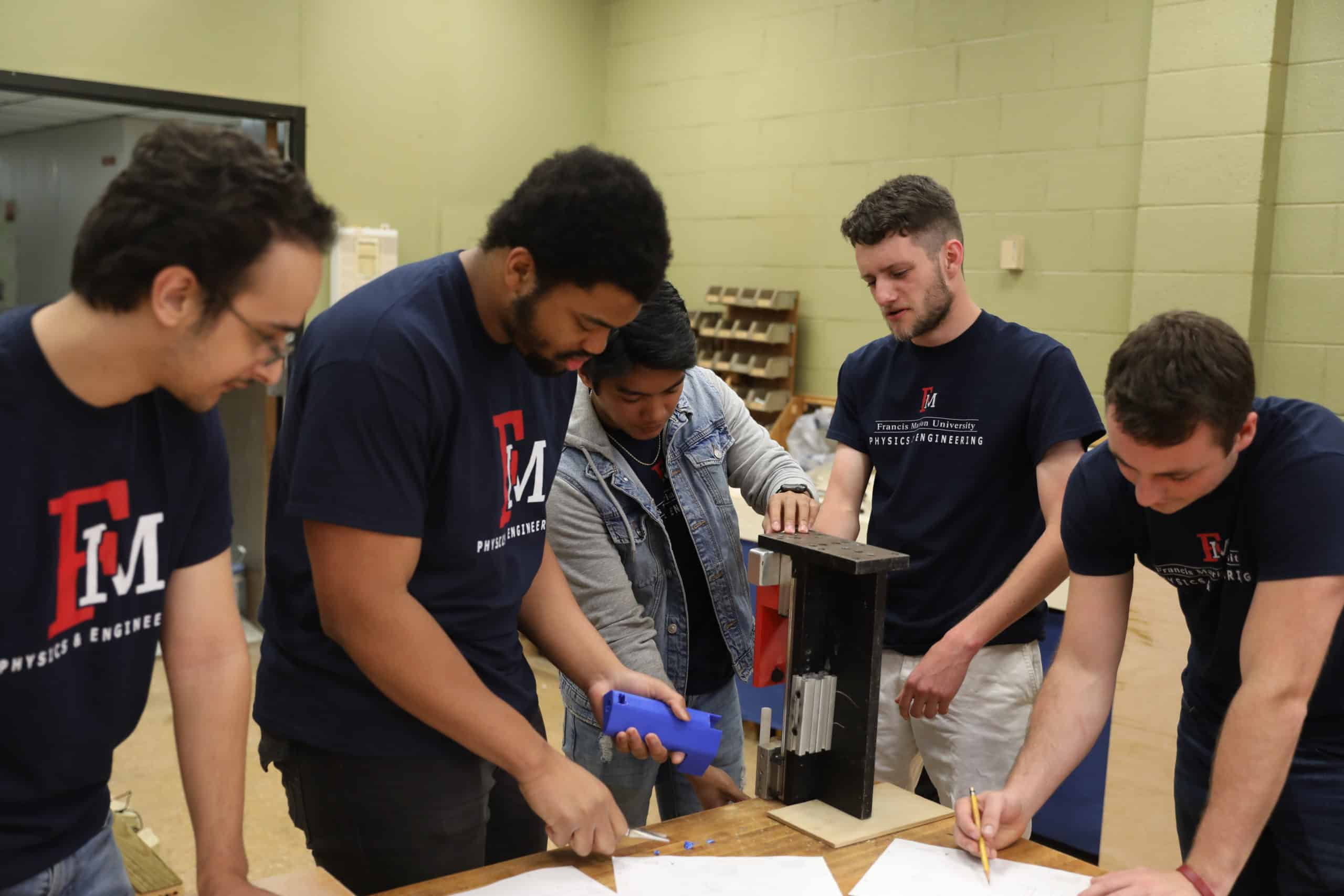May 7, 2022

FMU graduates first Mechanical Engineering class
Francis Marion University has a new starting five.
No, not the basketball team. The first students to graduate from FMU’s Mechanical Engineering program received their diplomas during Saturday’s commencement ceremony.
Colton Mims and Matthew Todd of Pamplico, Kevin Smith of Cheraw, Maximo Rainwater of Florence, and Devin Warren of Greenville were all awarded diplomas and became a part of university history.
Warren, who was also awarded FMU’s first ever Mechanical Engineering Award earlier this year, called the experience “mind-blowing,” and said being one of the program’s first five graduates “definitely feels big.”
“When we come back years from now and visit this program to see how large it becomes, it will be kind of cool to know that we started at its beginning,” Warren said. “That’ll be awesome.”
The head coach – that is, program coordinator – of Mechanical Engineering is Dr. Rahul Renu. Renu came to FMU in 2016 after earning a master’s and Ph.D. from Clemson University. According to him, FMU could not have hoped for a better team of graduates.
“They represent everything that our program is about. They have all gained industry work experience (through internships) prior to graduating, some have performed undergraduate research, they’ve all actively participated in the FMU community and have all grown to become well-rounded professionals,” Renu said.
The Mechanical Engineering program has attracted many students in the first three years since its inception, according to Renu. The program expects this trend to continue, which they attribute to the strong regional need for mechanical engineers.
The Mechanical Engineering program, along with its Industrial Engineering counterpart, was created in direct response to regional and statewide industry leaders. The first ME classes were offered in the fall of 2019 and a dozen students were initial participants. Last fall, 85 students were enrolled in the Mechanical Engineering program, and two ME assistant professors have been added to the faculty in the past two years.
Plans to expand the program further are already well under way, both academically and with facilities. Civil Engineering and Electrical Engineering programs are expected to be added in the coming years, and a new $1 million, 5,000-square-foot applied learning facility to support engineering programs is slated to be built on FMU’s main campus by August 2023.
According to the “Starting Five,” FMU’s ME program was attractive because of its small class sizes and the opportunity to get to work closely with instructors.
The program gives students the opportunity to work with local industry, which for this class included GE Healthcare’s MRI production plant in Florence and Meritor in Manning.
Saturday’s commencement marked the end of one game for this starting five, but new games are about to begin. According to Renu, wherever these FMU grads go, success won’t be far behind.
“These students are great people. They are compassionate, empathetic, and considerate. These qualities along with their educational preparation will hold them in good stead for a long time to come,” he said. “I won’t be surprised if they become leaders within the next three to five years.”